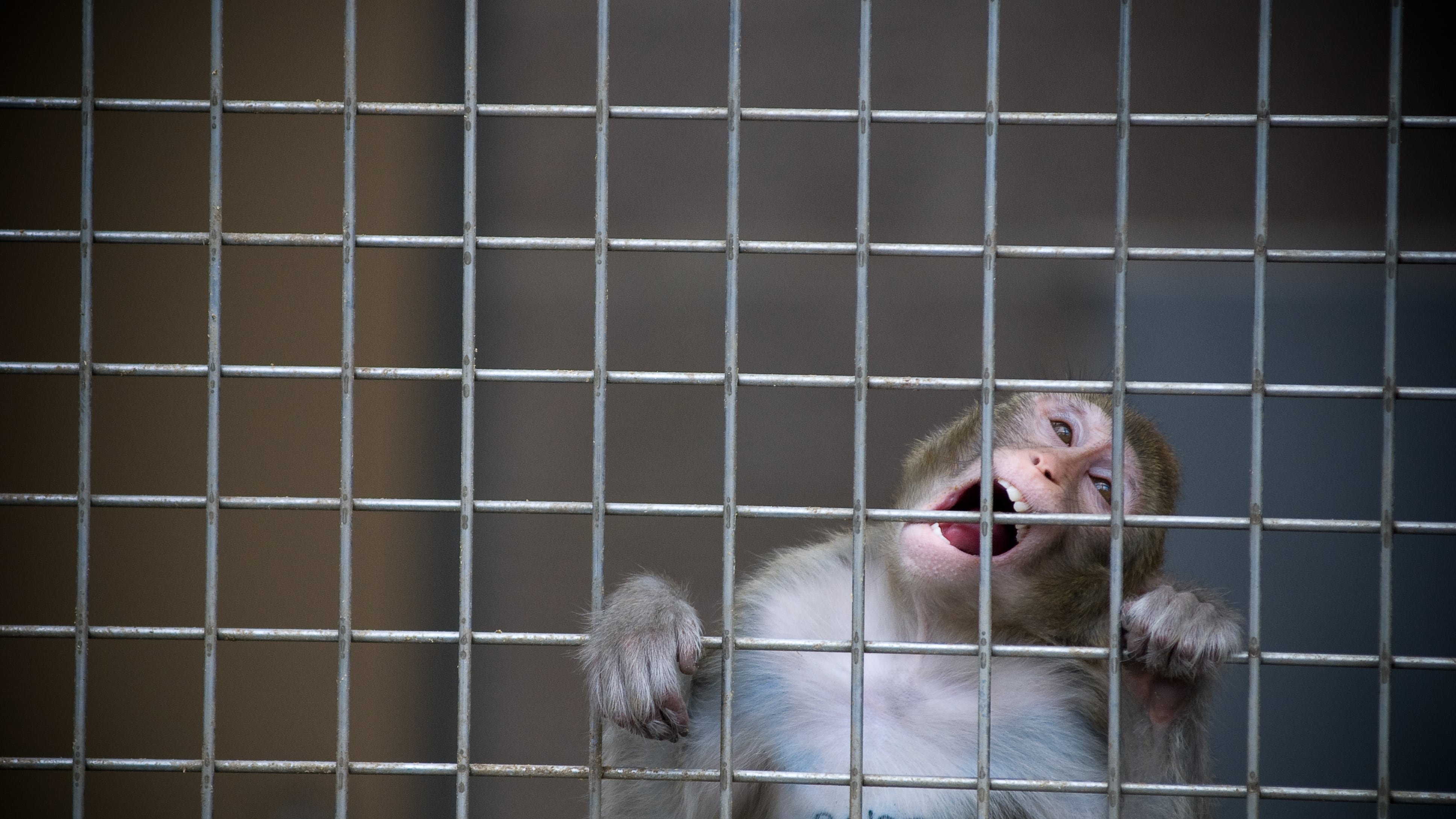Two adult rhesus macaque monkeys died this month in a cage-washing accident at Oregon Health & Science University's Oregon National Primate Research Center, OHSU announced Friday.
"On Aug. 13, 2020, an animal care technician placed a 6-foot-tall rack of nonhuman primate cages into a cage-washing machine and turned it on, unaware that there were two monkeys in one of the top cages," OHSU said in a news release. "The technician quickly realized the error and immediately called veterinary staff for help, but one monkey died and the second was later humanely euthanized."
OHSU says it is investigating and that the deaths were an accident.
"Dozens of highly trained veterinary professionals engage with these animals on a daily basis to ensure their ongoing safety, enrichment, health and well-being," OHSU said. "These dedicated individuals develop strong bonds with the animals entrusted to their care—often for many years, and, in some cases, decades—so, the accidental death of any animal is deeply distressing and their passing is grieved by all—we deeply regret that this accident occurred."
In July, the Oregon National Primate Research Center handed over 74 videos of experiments that scientists have been conducting on Japanese macaques after the People for the Ethical Treatment of Animals sued the center in 2019 for not fulfilling a public records request to provide the videos.
PETA adamantly opposes animal experiments, and it has regularly challenged OHSU's treatment of Japanese macaques.
"OHSU was happy to take millions of tax dollars to impregnate monkeys, feed them 'junk food,' and then separate the baby monkeys from their mothers in order to deliberately frighten them—but it fought tooth and nail against releasing the videos of this horror," PETA senior litigation counsel Martina Bernstein told WW in April.
OHSU has disputed claims that its treatment of animals is unethical.
"At OHSU, we employ hundreds of dedicated staff committed to providing humane, respectful treatment and the best possible veterinary care for every animal," OHSU spokeswoman Tamara Hargens-Bradley told WW earlier this month. "OHSU believes that knowledge gained through biomedical research in relevant animal models is essential to developing new ways to identify, prevent, treat or eradicate disease and to improve human and animal health."
